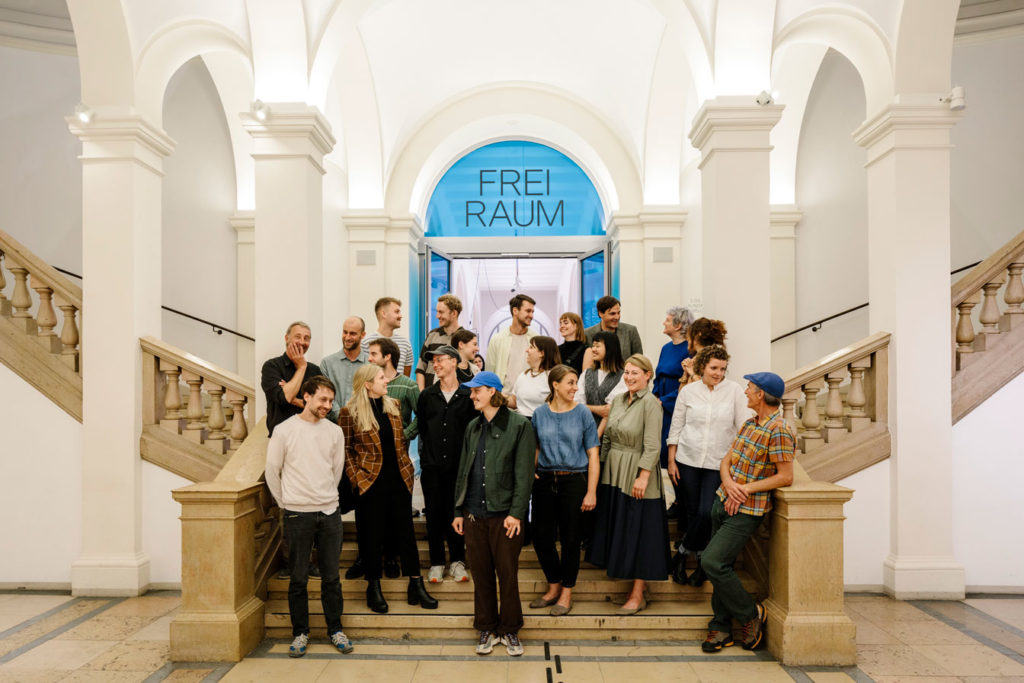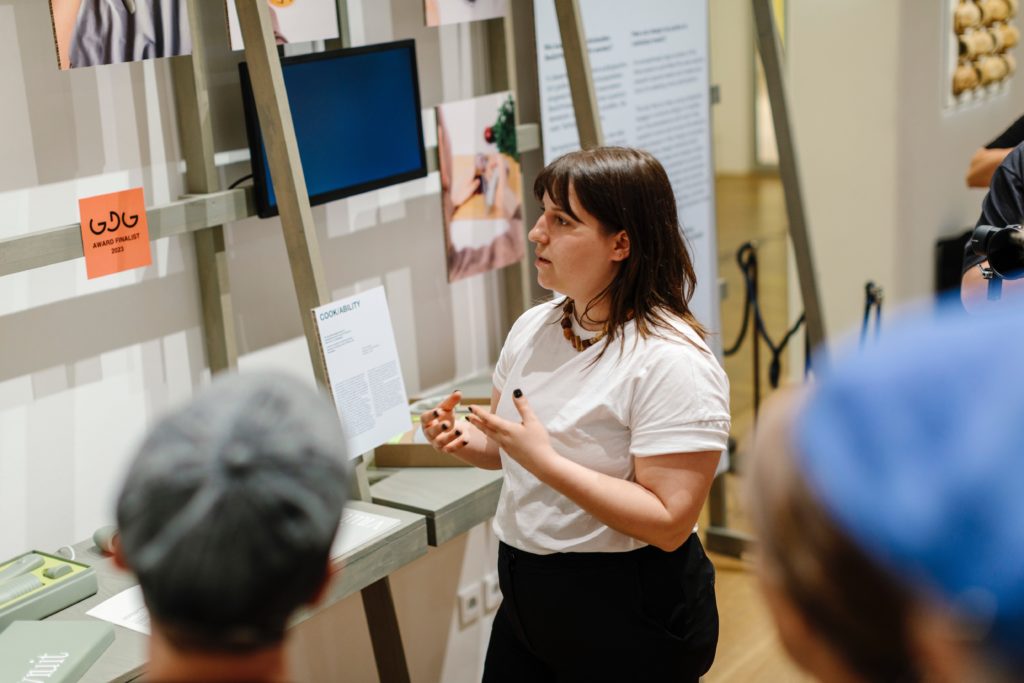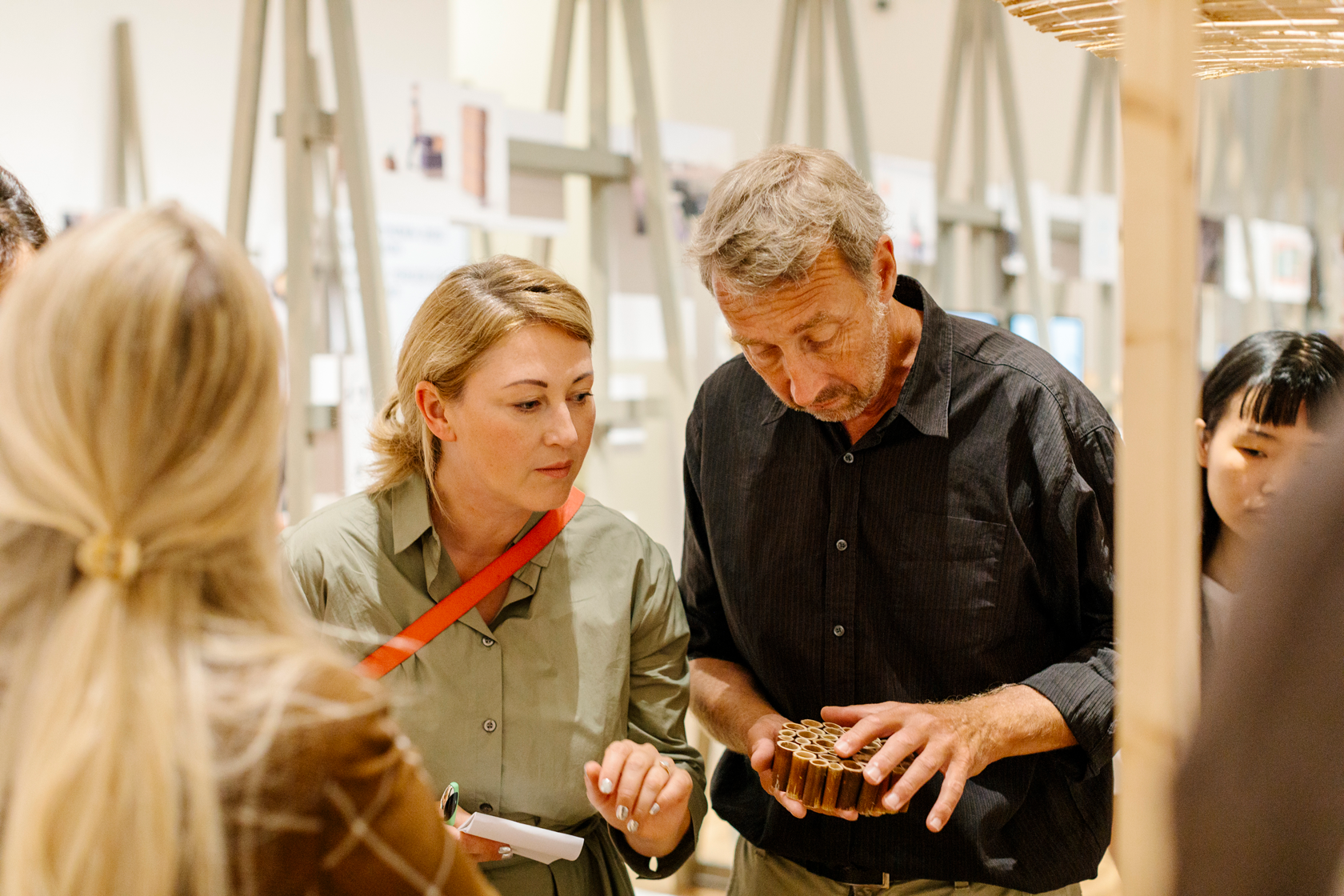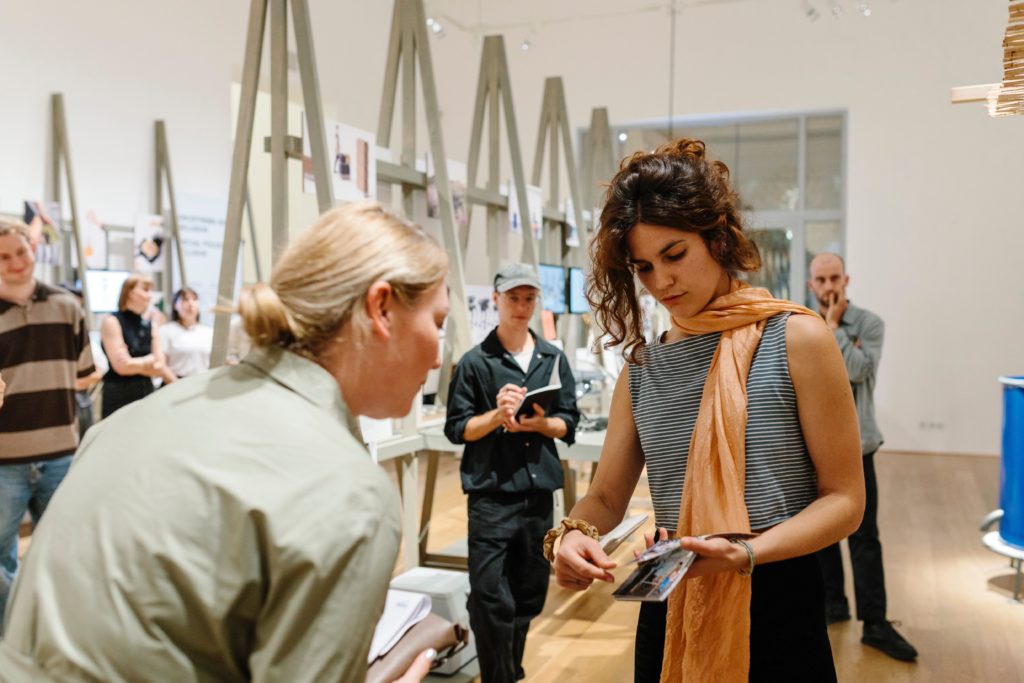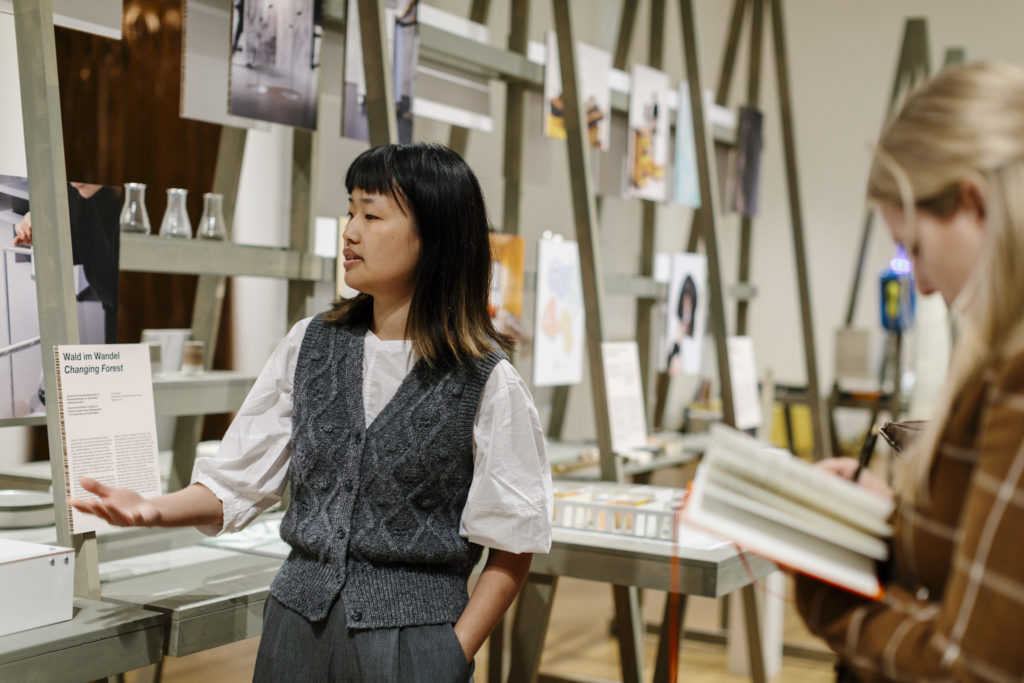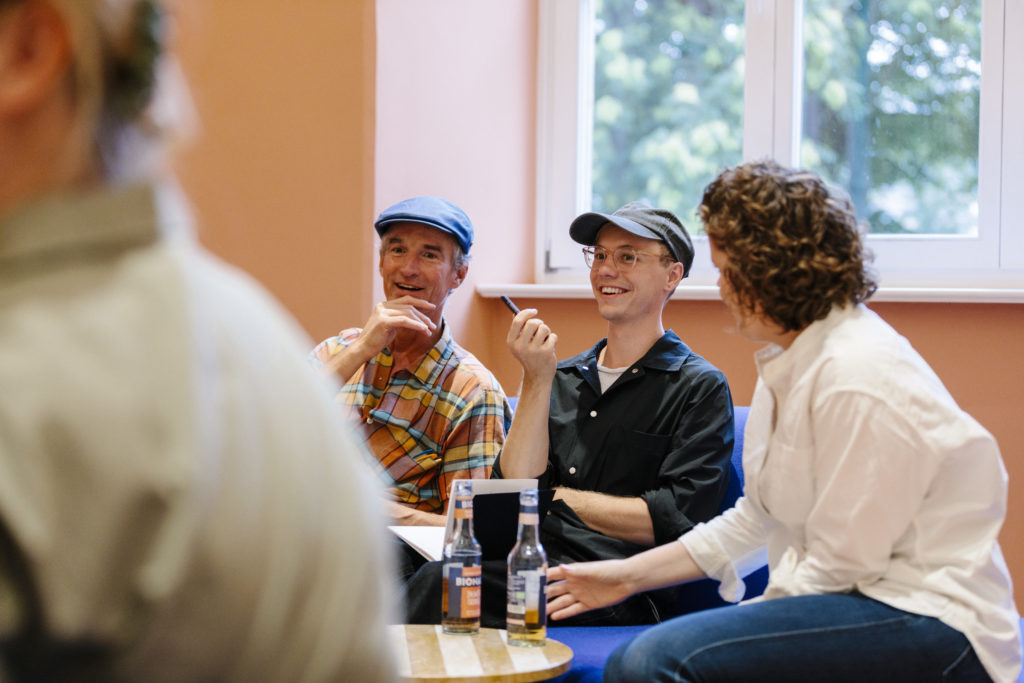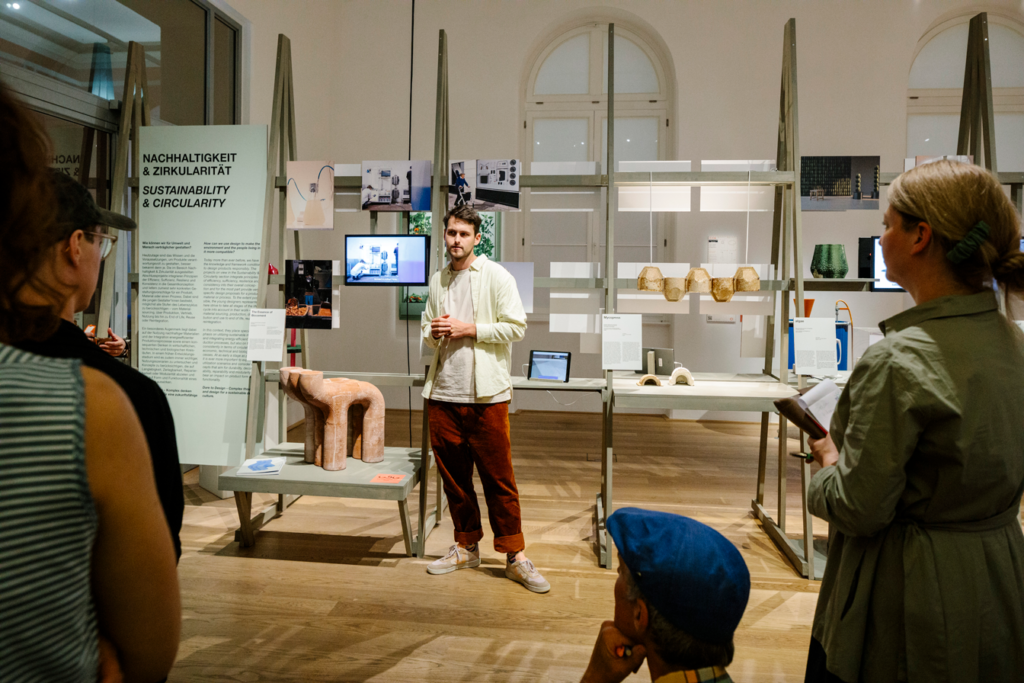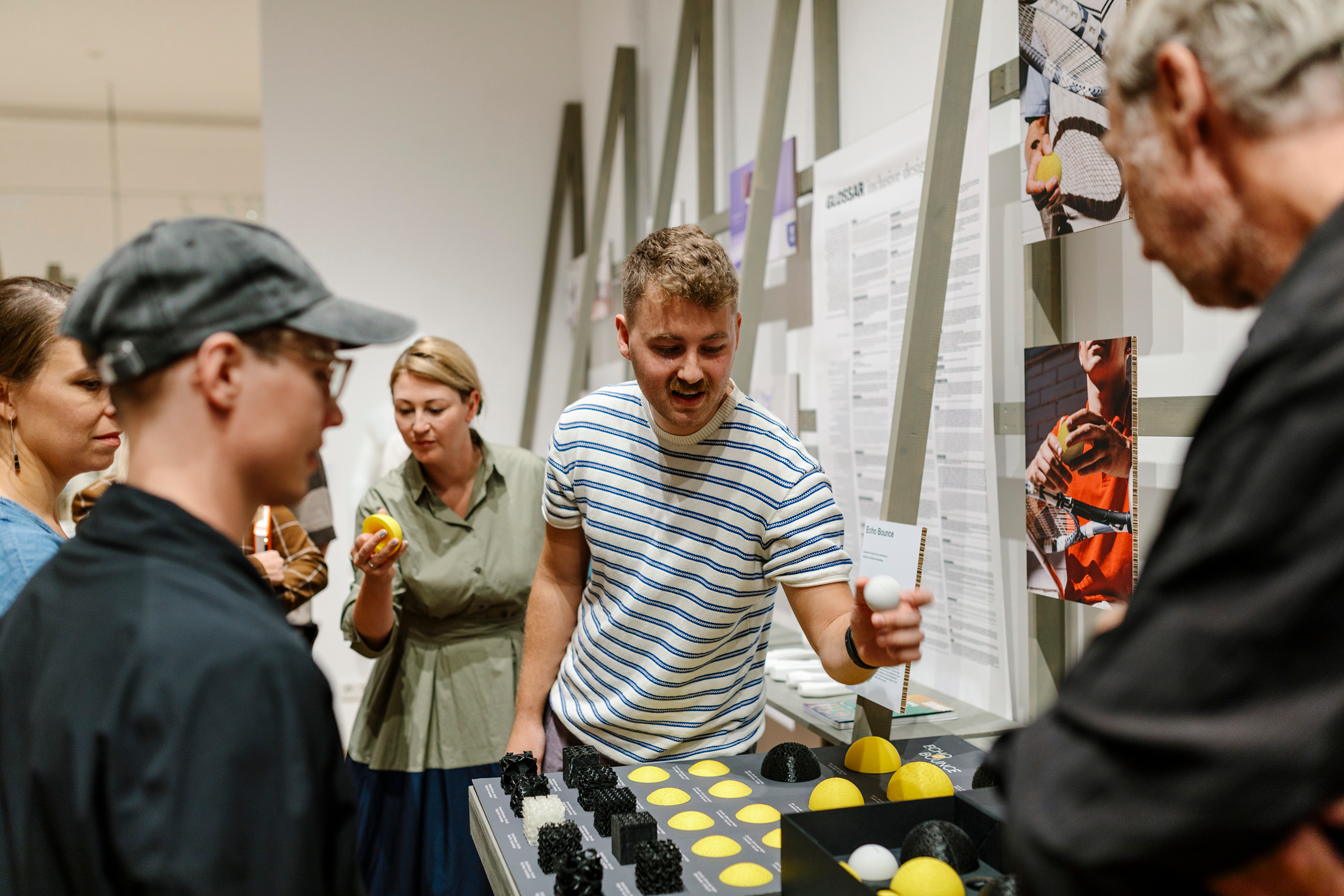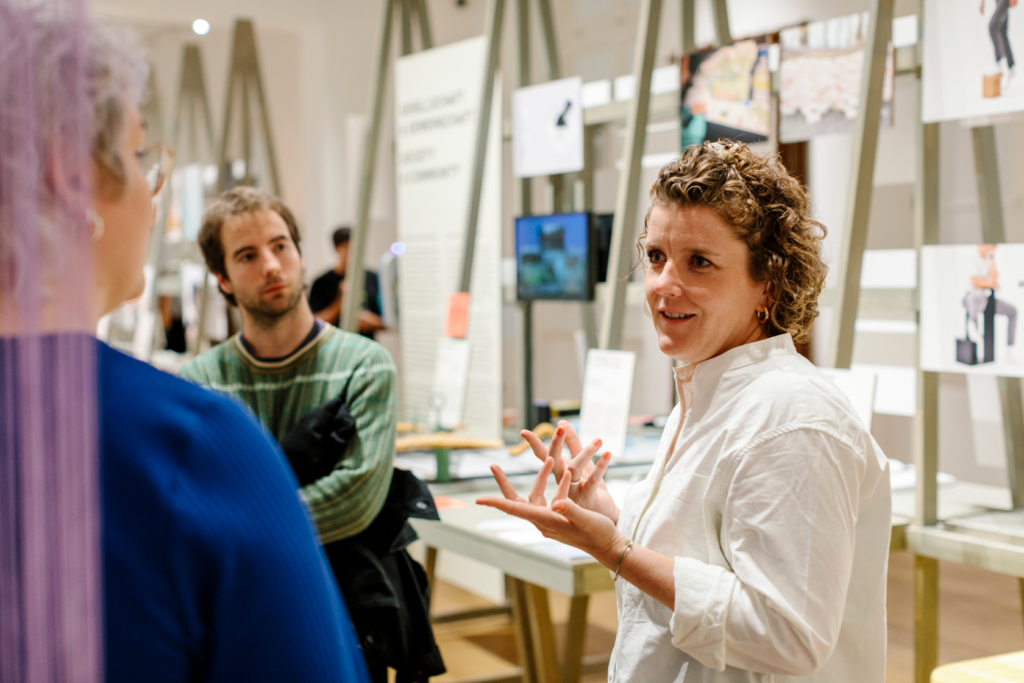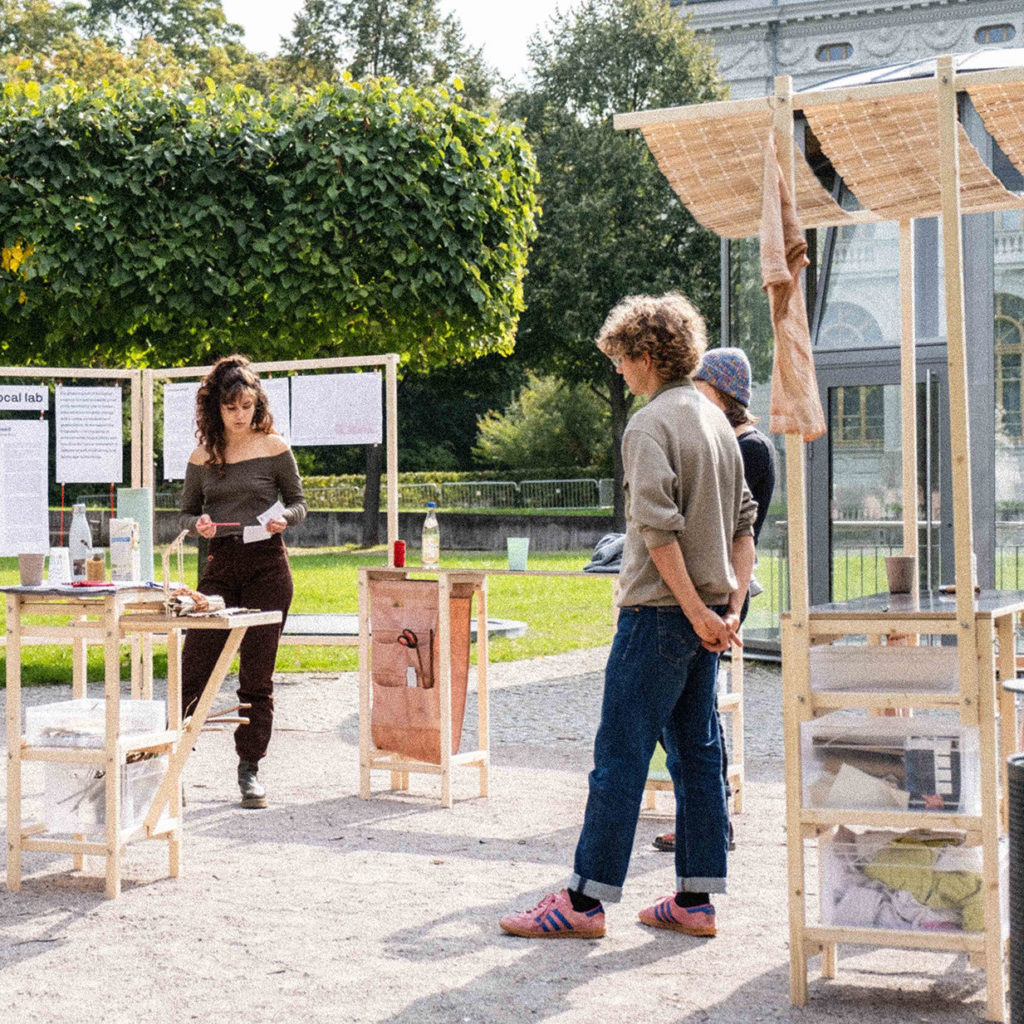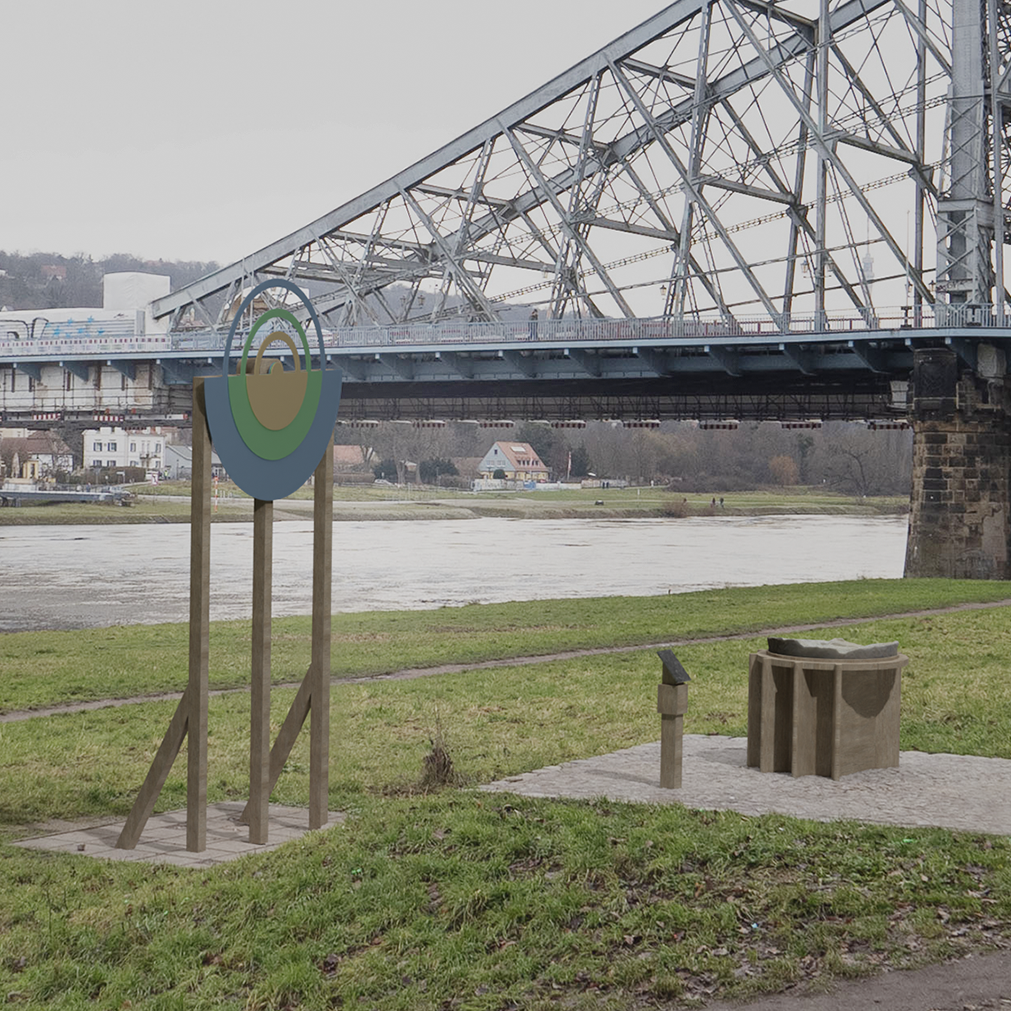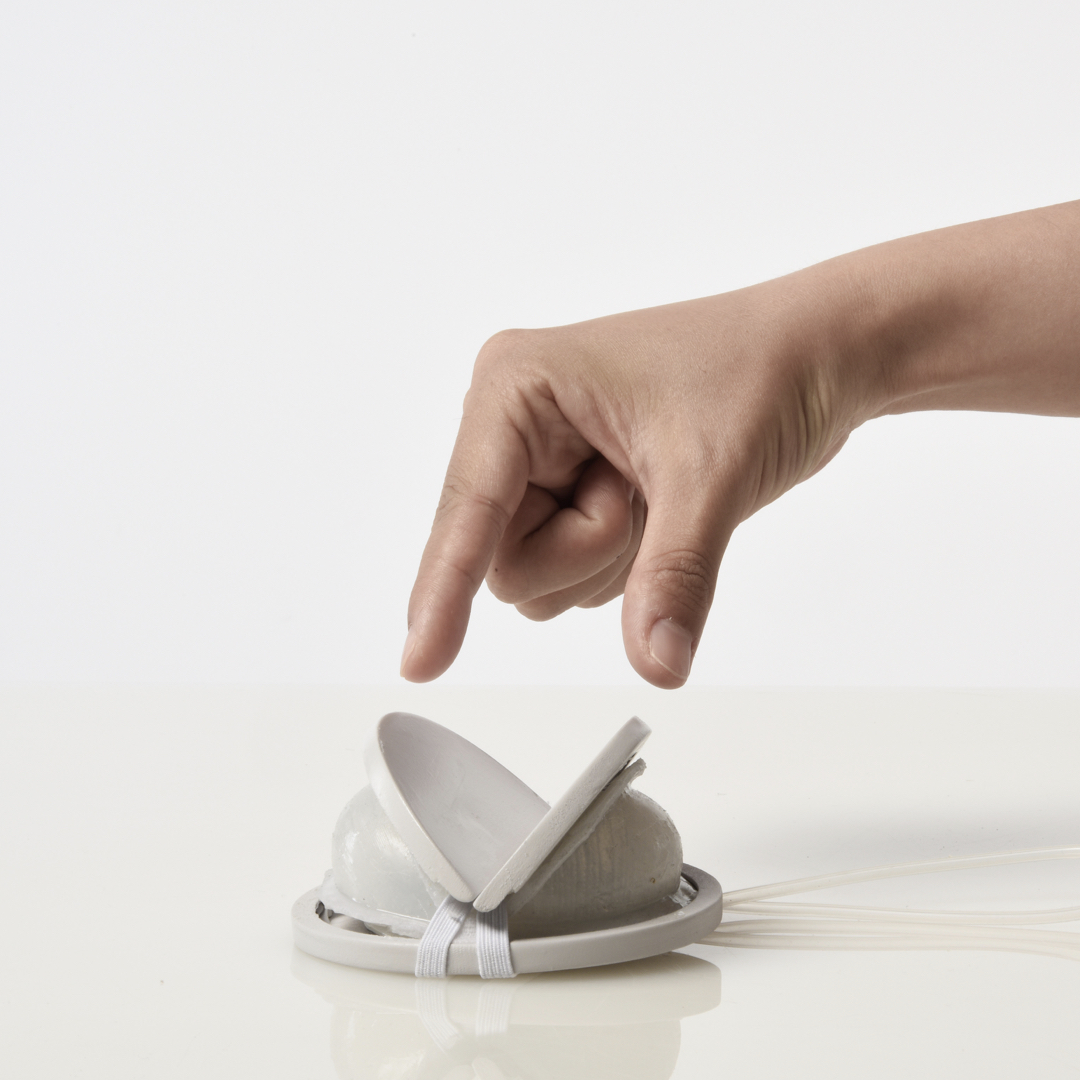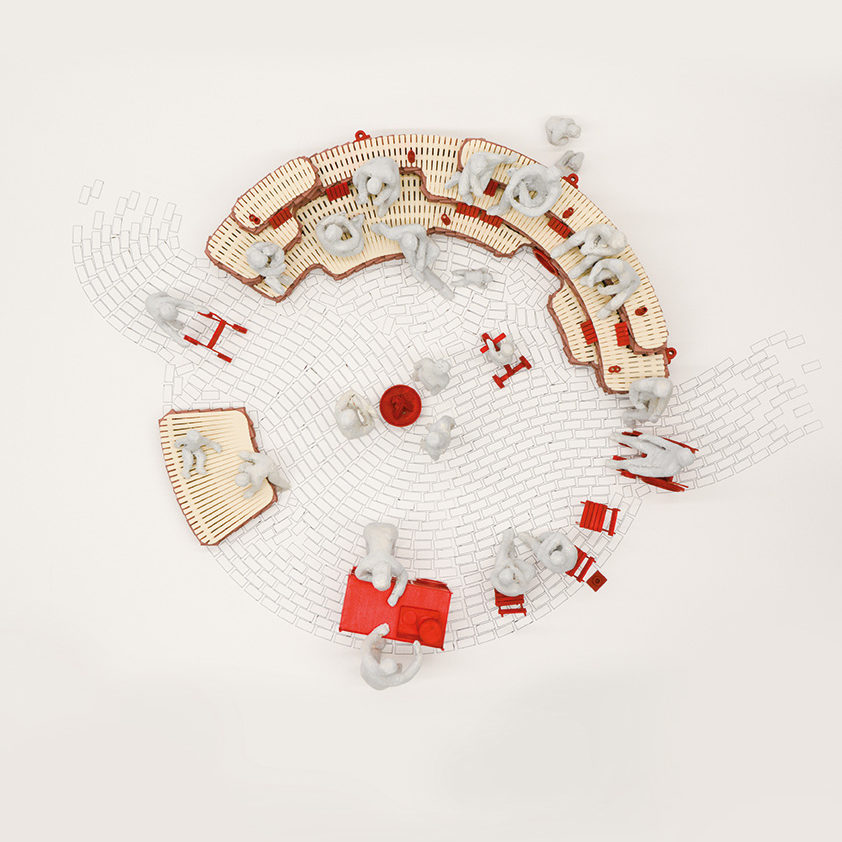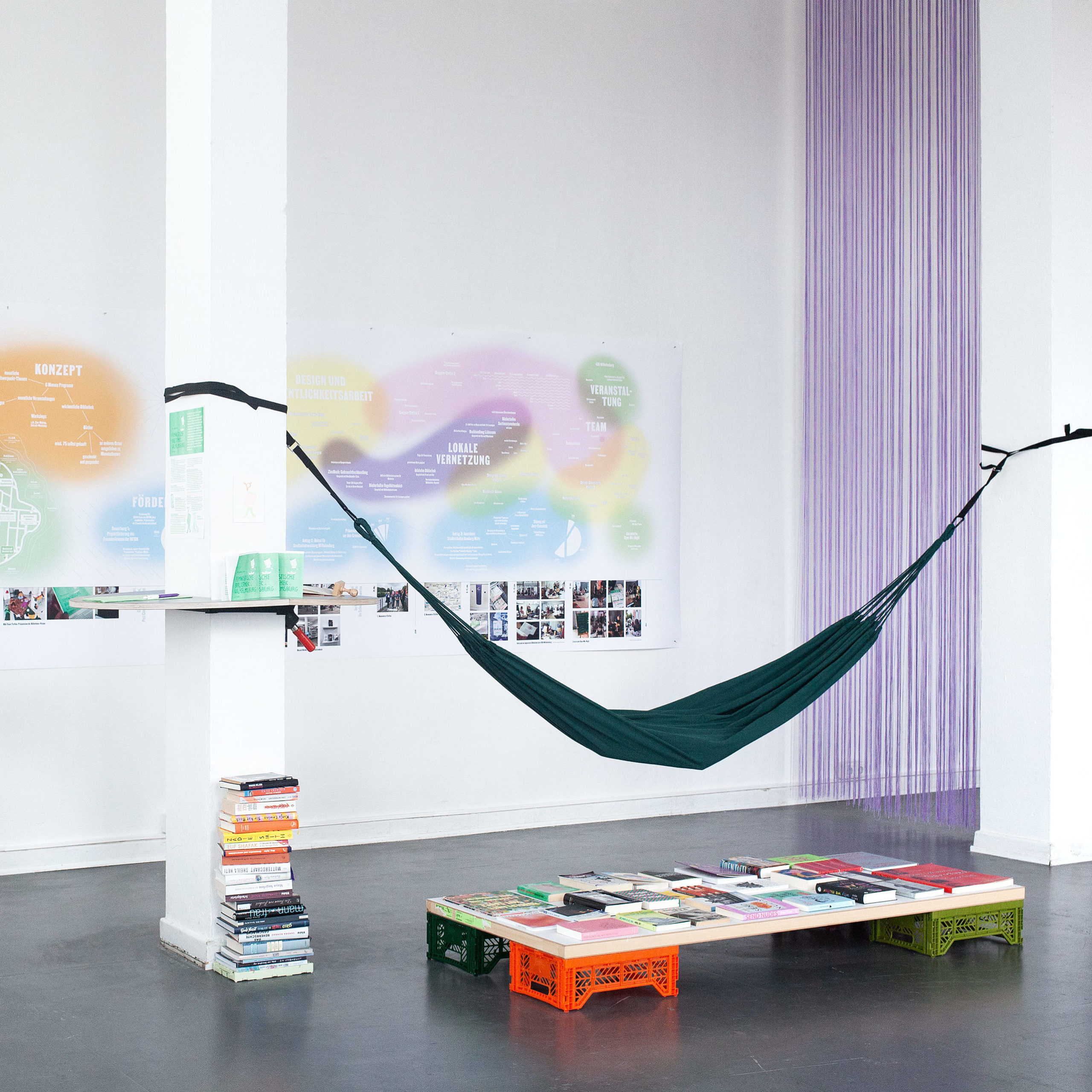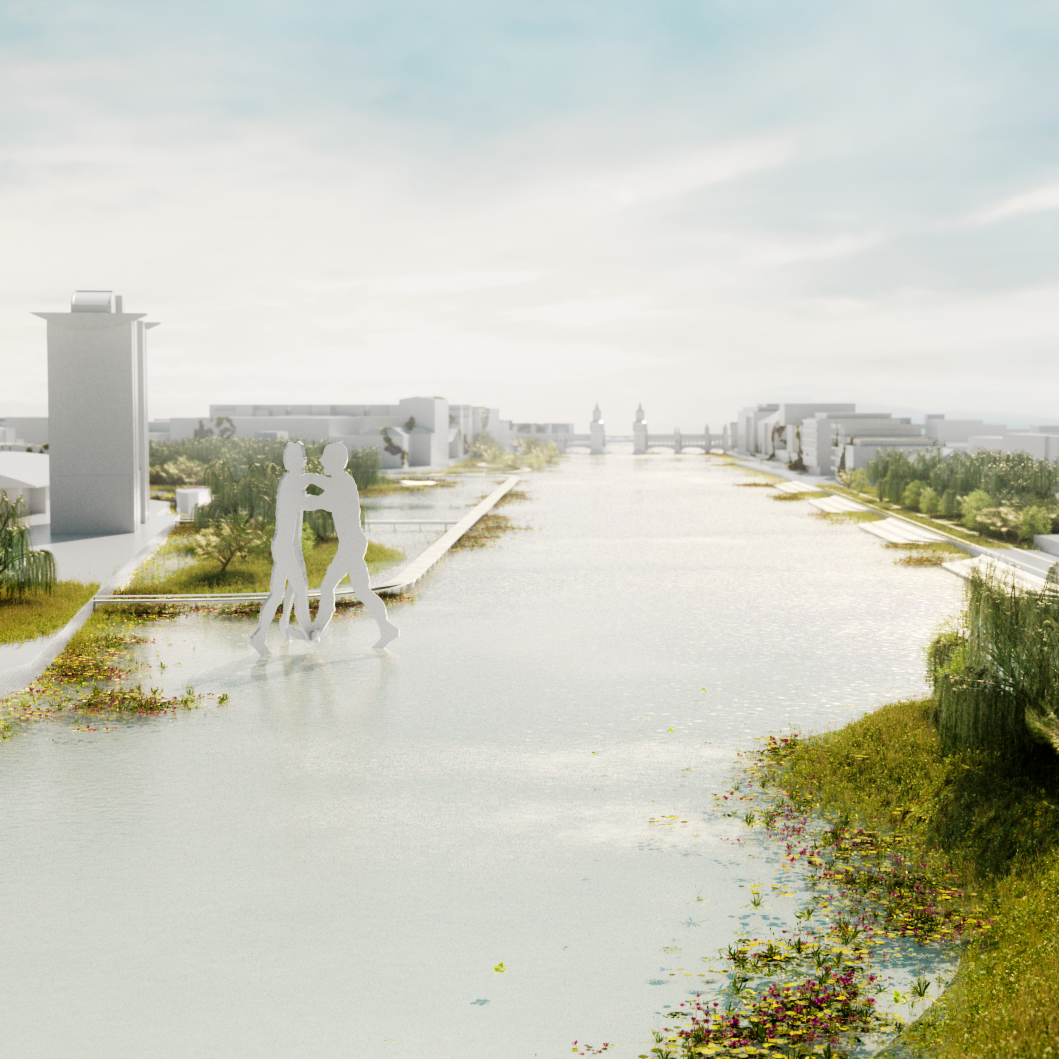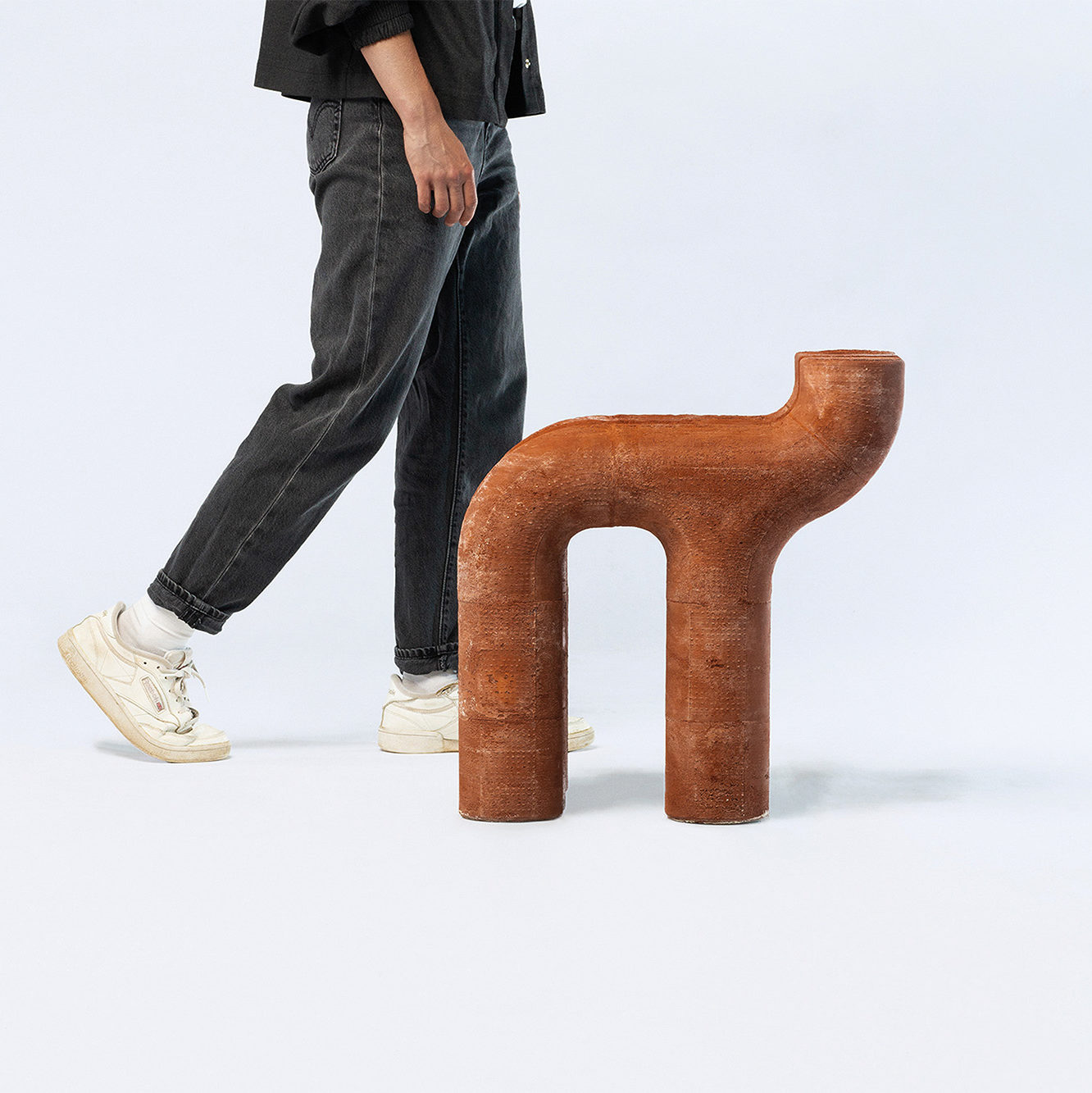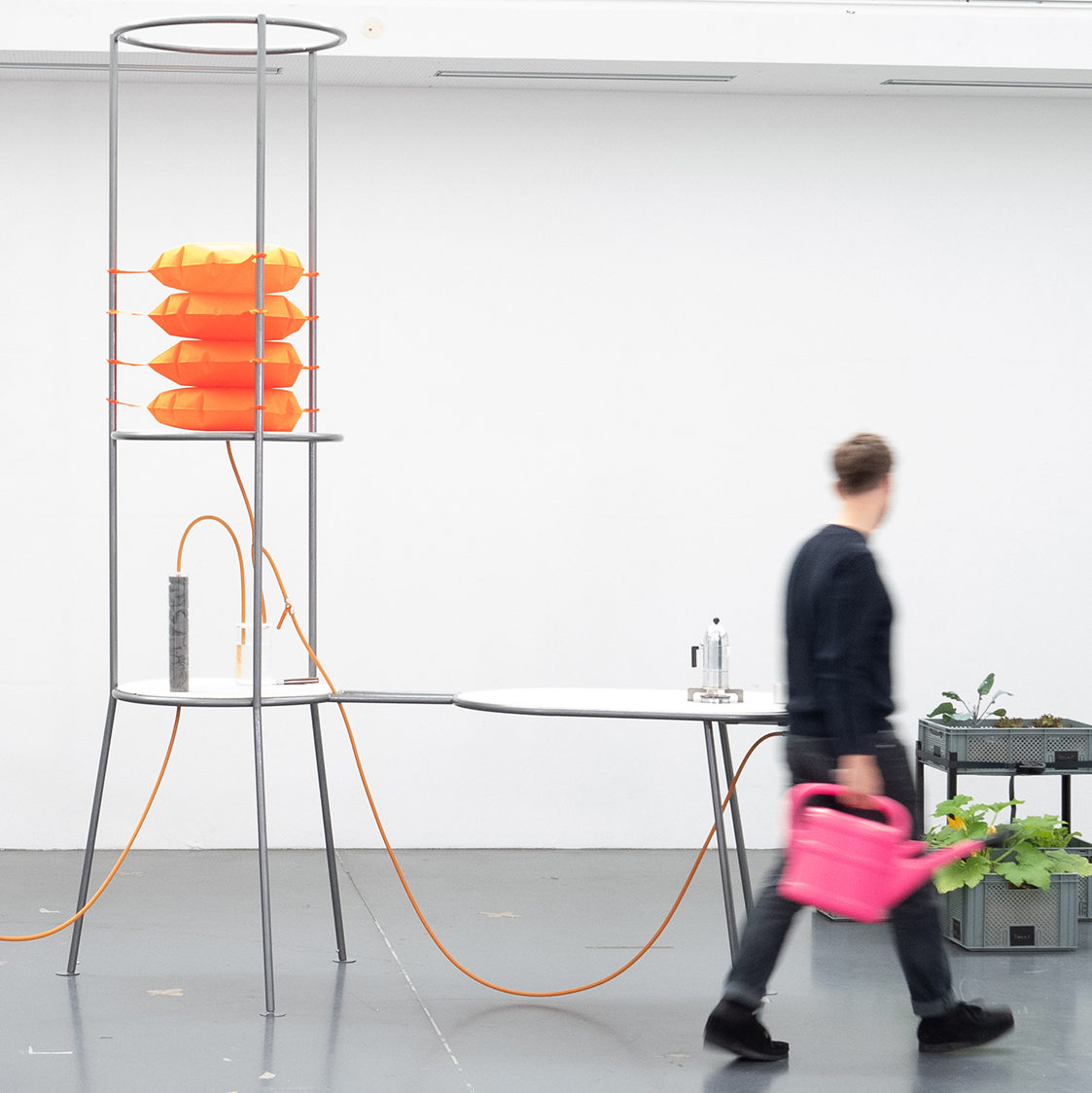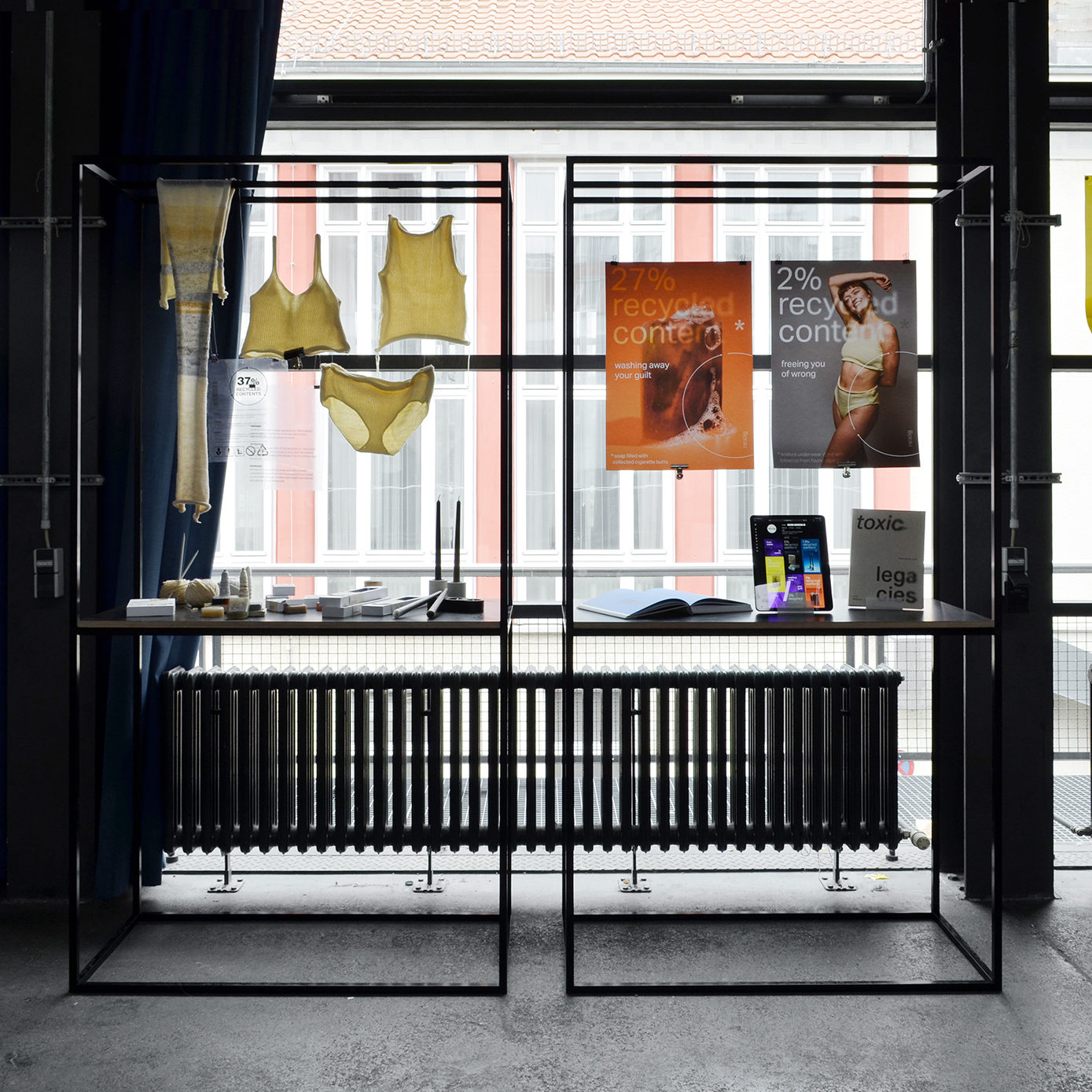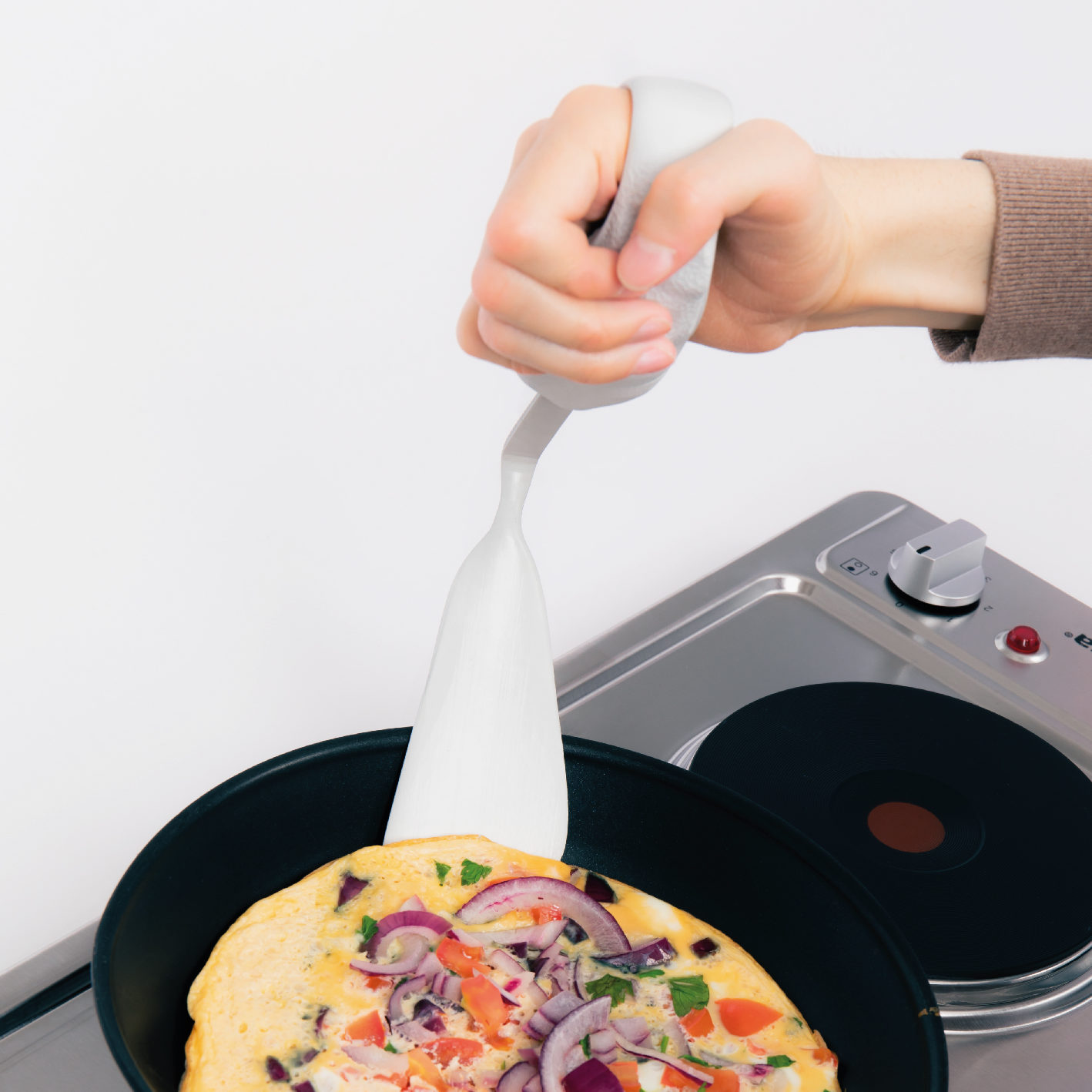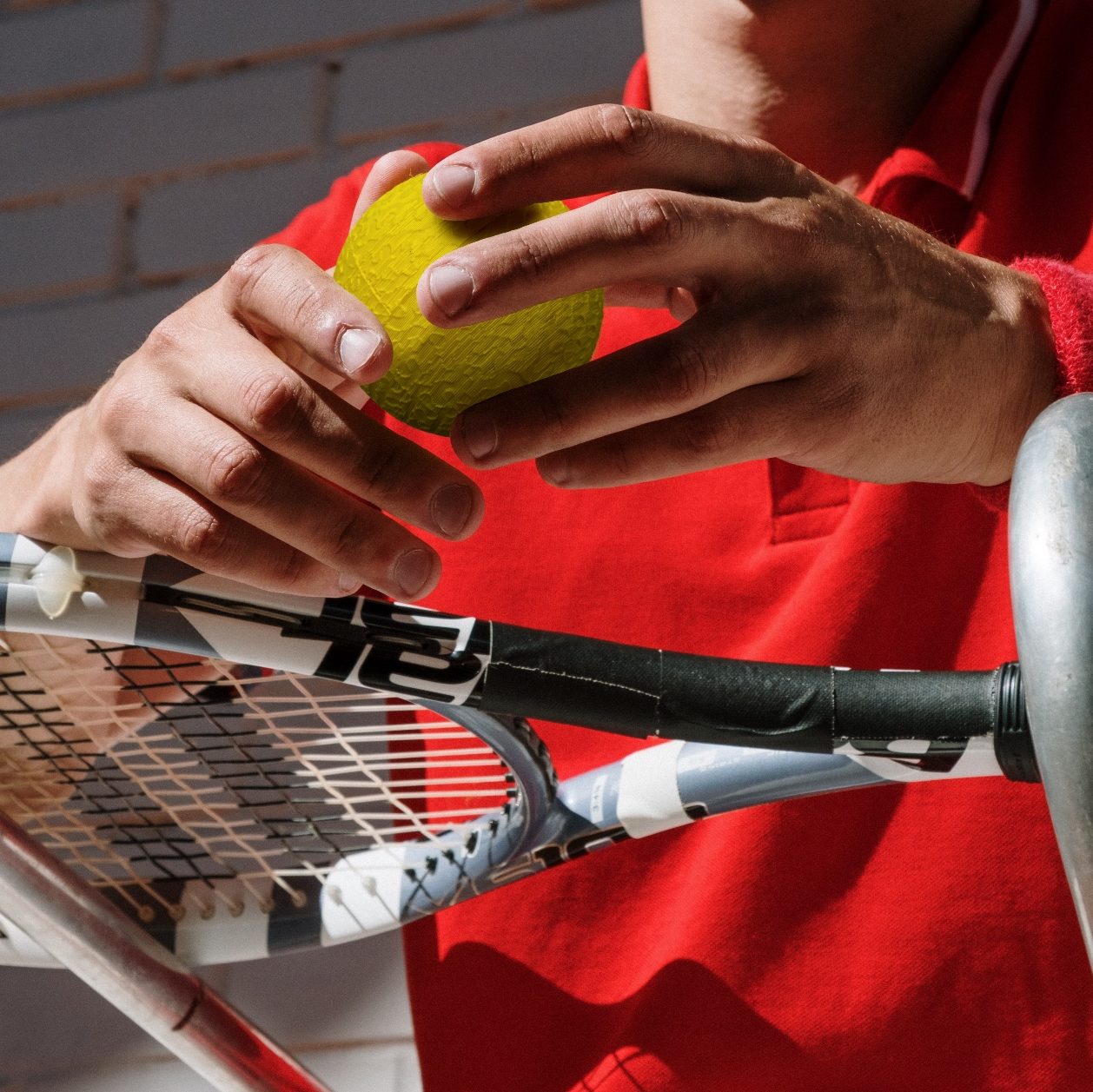AWARDS 2023
The initiative German Design Graduates Awards will also be presented in 2023. The prizes are each endowed with € 2,500, sponsored by the German Design Council Foundation.
go directly to the Award Winners
go directly to all Finalists
AWARD winner 2023 Research & Transfer
(non-) local lab Beatriz Oria Lombardía
“Based on the question of how design can add value to a scientific, ecological and social issue, this project not only pursued an interdisciplinary research approach, but also actively involved civil society. The designer has a clear mission: to scrutinise what contribution she as a designer and the design discipline can make to research, the environment and society. Beatrice Oria Lombardía uses the example of dealing with invasive plants to show the complex connections between environmental problems and our everyday actions. She does not simply focus on the problem, but creates solutions by questioning how invasive species such as knotweed can also be used as a resource.
It combines interdisciplinary knowledge with design-based material research and creates space for social participation with its installation. In this way, the project shows how design can build bridges between research and society, creating new ways of transferring knowledge beyond the usual paths.”
Jury statement
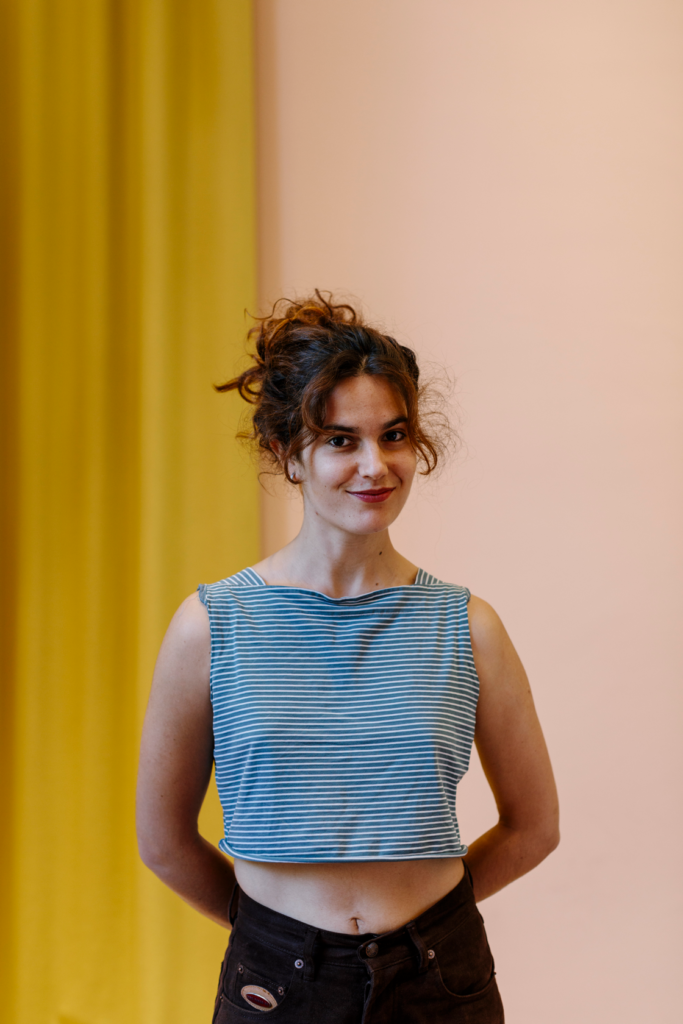
AWARD winner 2023 Society & Community
“Anna Unterstab achieves many things at the same time with her thesis: she creates visibility for queer-feminist issues and current challenges in Hamburg Wilhelmsburg. She has created an analogue space, a meeting place for exchange, self-empowerment, shared learning and collective reading. What impressed us about the project was the unconventional approach in the sense of an expanded concept of design, from which not ‘only’ the design of a product or system emerges, but something much more comprehensive, deeper and multi-faceted. With this special approach, Anna has managed to ensure that her work does not remain anchored in the future as a pure vision, but is actually located in the here and now and can have an important, immediate effect there. The result is a ‘real utopia’, so to speak, skilfully embedded in existing structures. In this way, she boldly and very concretely demonstrates the direction in which the design discipline can develop further – with great self-confidence she breaks the boundaries of the discipline and what ideas a design thesis should supposedly correspond to. Last but not least, she summarises all of this in the form of a great publication, which will soon be published by adocs. We were very impressed by Anna’s work and are excited to see how she will develop Bücheria further.”
Jury statement
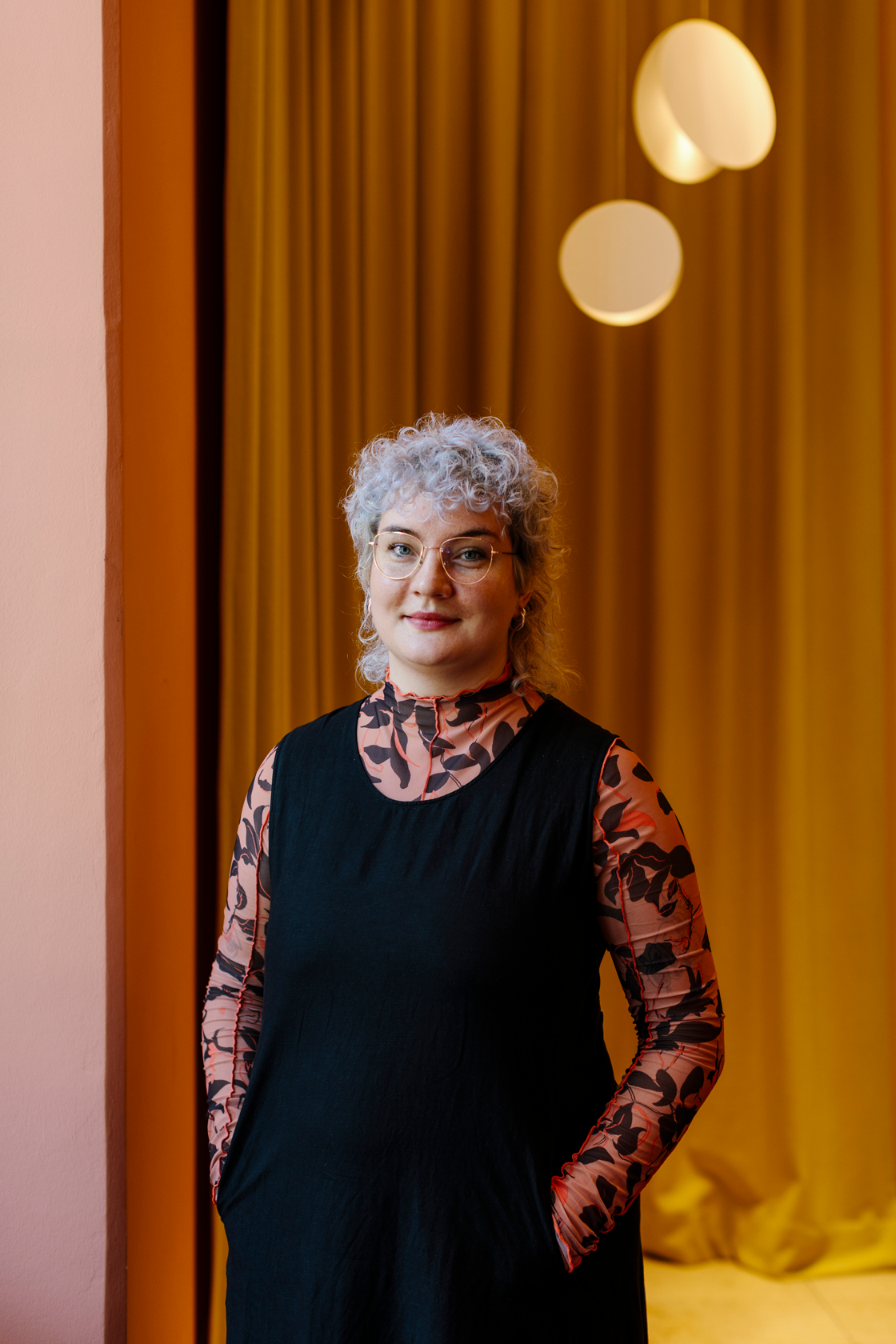
AWARD winner 2023 SUSTAINABILITY & CIRCULARITY
Toxic Legacies Leila Wallisser
“The award-winning project Toxic Legacies by Leila Wallisser is particularly characterised by the way in which designers deal with complex problems and develop and appropriate topics step by step, sometimes in a roundabout way. Starting with the problem of how used cigarette filters could be used sensibly, various material experiments led to the question of the value of the original product itself and the price at which recycling is worthwhile. The jury was impressed by the transparency with which these detours are described in the project and how the path to the result of the work is demonstrated and visualised. In the project, Leila Wallisser tackles the scale of the problem and takes a critical approach not only to the topic but also to her own working methods. The resulting campaign ‘re:cig’ criticises ‘recycling as a solution for everything’ and charmingly exposes the good conscience and (self-)deception it propagates.”
Jury statement
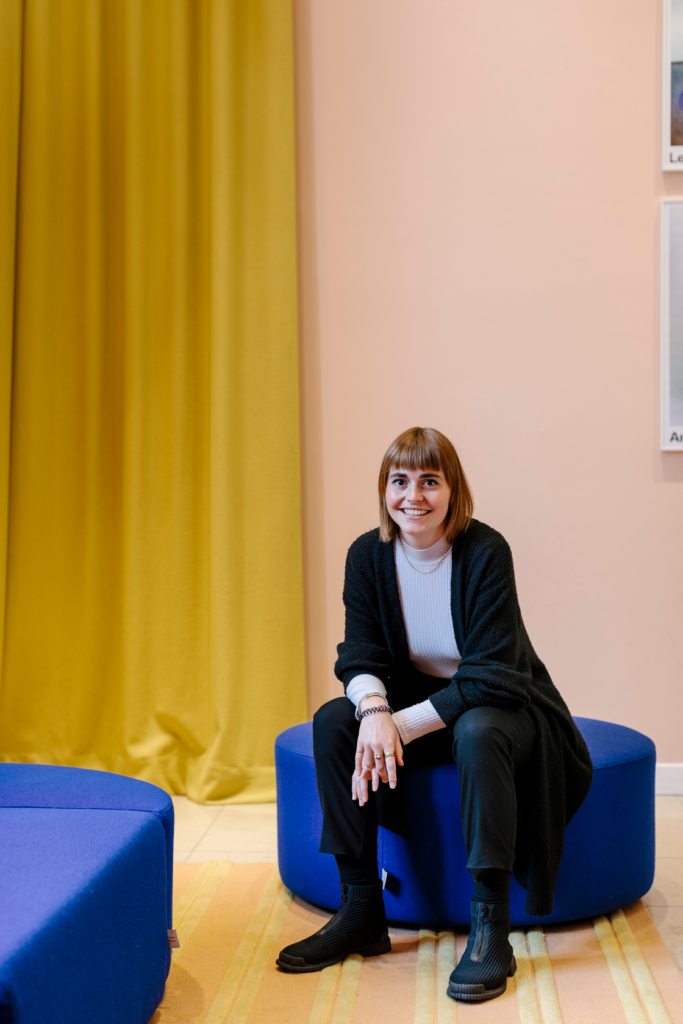
AWARD winner 2023 SPECIAL FOCUS 2023 – INCLUSIVE
“The designer, who in this case was selected by the entire jury, dealt with a topic in her final thesis for which there is a great need and yet still no good solution, but above all makeshift solutions. This may also be due to the fact that it is a taboo subject. With Vruit, Juliane Kühr has developed a product that empowers a large group of people – primarily queer couples and singles who wish to have children – to help fulfil this wish in an aesthetic and pleasurable way. However, Vruit not only wants to support, sensualise and simplify ‘the choreography’, as the designer calls and has designed the process surrounding insemination (sperm transfer), with the sex toy, but also provide information about health issues and legal challenges with an accompanying booklet and also point out crucial support services. Her thesis is therefore multi-dimensional, incorporating various socially relevant aspects and providing information. The designer thinks the product, or rather the topic, far beyond the scope of her thesis and thus manages to present a vision for meeting the needs of the target group.”
Jury statement
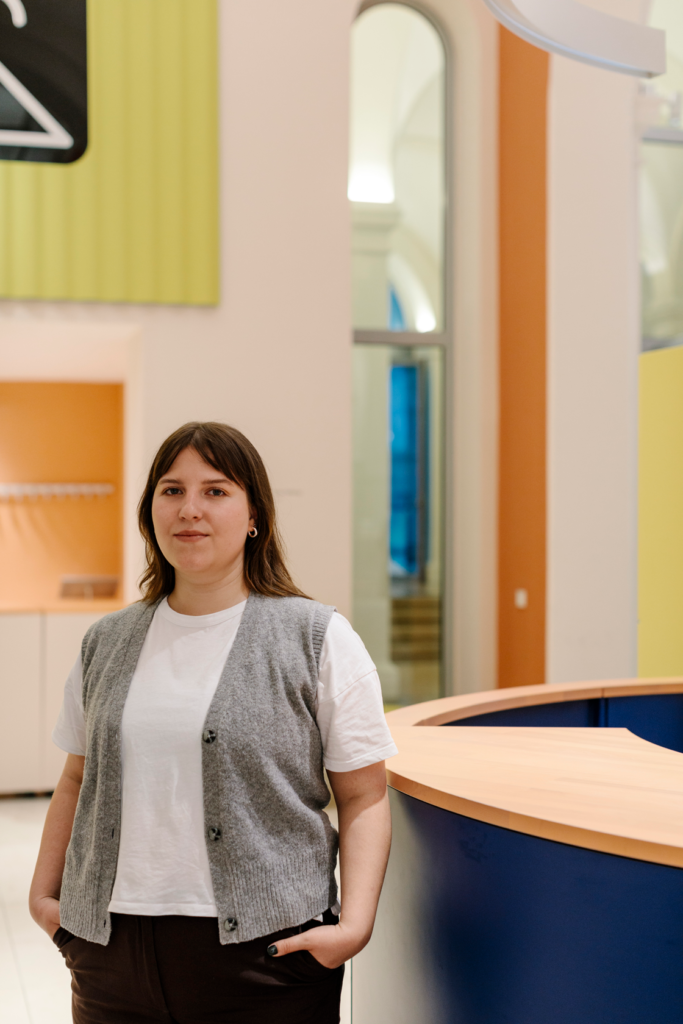
Finalists Research & Transfer
The fields of practical, application-oriented design research are extremely broad in scope. The spectrum encompasses such widely differing aspects as material research, the exploration of new interdisciplinary interfaces and the development of collaborative and participatory methods for better knowledge transfer and more participation. The final projects presented in the Research & Transfer section are distinguished by their particularly profound penetration of theme and problem formulation. Their detailed documentations mirror the non-linearity of procedure so important in this area, while also explicitly addressing the multifarious research and design process methods. An essential element of these projects is interdisciplinary work and the targeted development of points of departure for in-terdisciplinary cooperation. The projects achieving the transfer from research results to application – and thus accelerating that transfer with the aid of design methods – are especially worthy of note.
Jury
Dr Andrea Augsten, Strategist and Design Researcher, Innovation Lab of the Deutsche Gesellschaft für Internationale Zusammenarbeit (GIZ) GmbH and Board Member of the German Society for Design Theory and Research
Lynn Harles, Creative Engagement Manager, Museum für Naturkunde Berlin
Stephan Ott, Director, Institute for Design Research and Appliance
FinalistS SOCIETY & COMMUNITY
How do we want to coexist? The designs presented in the category Society & Community have the potential to trigger transformation processes in society. The design methods, many of which are participatory, bring forth integrative design proposals in the context of culture and society and contribute to advancing the necessary social – and even political – paradigm shift. The first steps towards a better form of coexistence are highly complex. To begin with, they must be capable of involving people with a wide range of different backgrounds. In their projects, the young designers provide detailed insights into the possible interfaces between existing and conceivable sustainable cultural practices and processes. This section presents a broad spectrum of ideas – from protest objects intended to point out misconduct and futurist space debris collectors to extremely specific proposals for community-fostering coexistence and learning tools for promoting more ecological behaviour patterns.
Jury
Prof. Kris Krois, Professor an der Freien Universität Bozen
Barbara Lersch, Referentin Hans Sauer Stiftung
Tobias Trübenbacher, Designer
FinalistS SUSTAINABILITY & CIRCULARITY
How can we use design to make the environment and the people living in it more compatible?
Today more than ever before, we have the knowledge and framework conditions to design products responsibly. The projects on view in the Sustainability & Circularity section integrate principles of efficiency, sufficiency, resilience and consistency into their overall conception and for the most part provide very specific design proposals for a product, material or process. To the extent possible, the young designers re-presented here strive to take all stages of the life cycle into account in their work—from material sourcing, production, distribution and use to end of life, reuse and reintegration.
In this context, they place special emphasis on utilizing sustainable materials and integrating energy-efficient production processes, but also on thinking consistently in terms of circulation in economic, technical and biological processes. At as early a stage as possible, it is ever more important to explore utilization scenarios and consider concepts that aim for durability, decomposability, reparability and modularity and bear an impact on product form and functionality.
Jury
Leif Huff, Design- und Innovationsstratege der Agentur FLUID
Dr. phil. Florian Sametinger, Leiter Forschung der Agentur KISKA
Ronja Scholz, Expertin für Eco-Design & Circular Service Design am Fraunhofer Institut für Zuverlässigkeit und Mikrointegration
Finalists SPECIAL FOCUS 2023 – INCLUSIVE
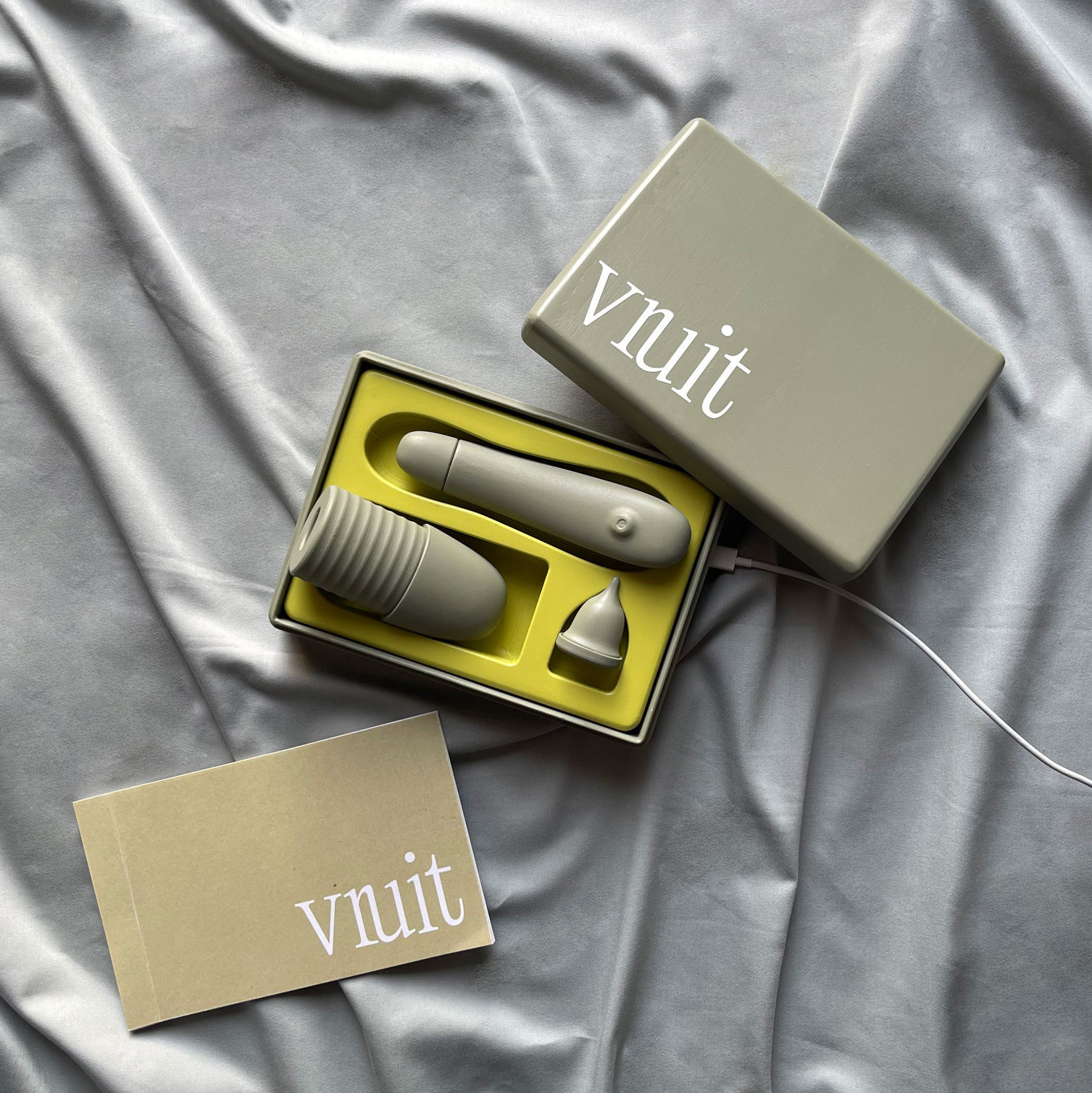
Vruit
Juliane Kühr
Hochschule der Bildenden Künste Saar
How can design do justice to individual needs? An exceptionally large number of the final projects submitted this year explore people’s special needs and create solutions for enabling more participation. The fact that so many young designers engage in inclusive design is notable – as is the persistence with which they question norms and involve the relevant target groups in their design processes. Participatory design methods facilitate sensitive ideas and designs distinguished by their potential to promote ideas for social inclusion and participation and put those ideas into practice. The designs on display in this section of the show create alternatives, promote diversity and plurality, and empower users to participate.

